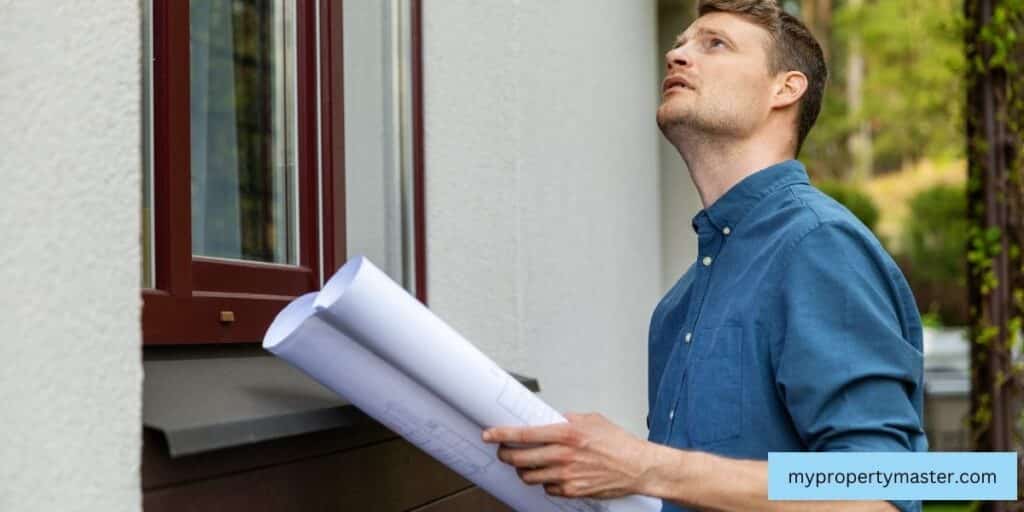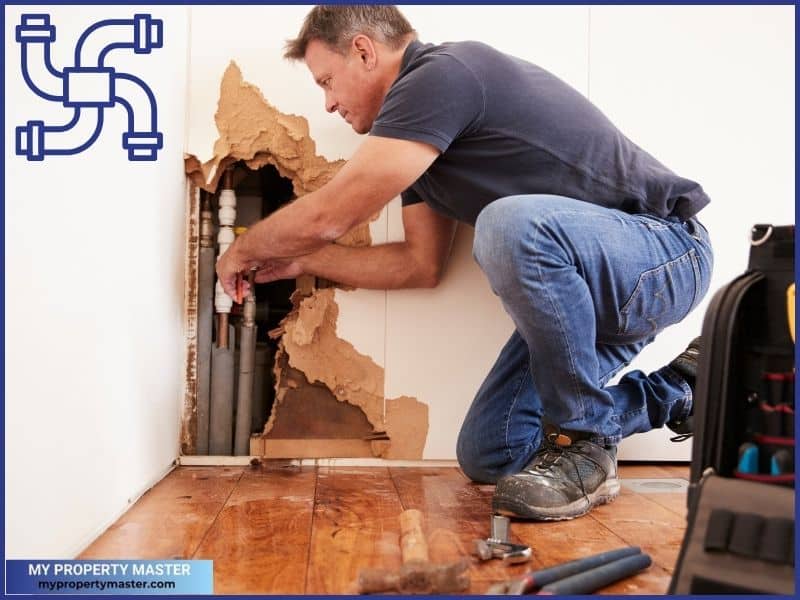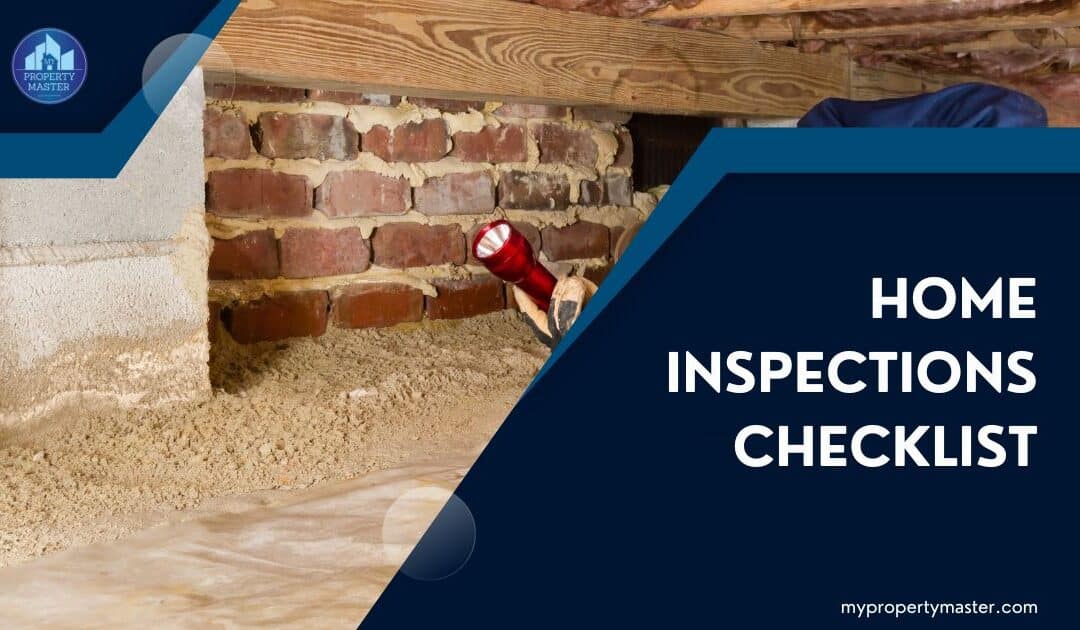A home inspection is the process of checking & noting down the current condition of your house. There are different purposes and situations when you need to inspect your home. Here are some of them:
- Registering for home insurance
- Claiming insurance for certain damages
- Finding & fixing existing problems
- Keep maintaining the house regularly
- After a natural disaster like heavy rain, storm, earthquake
- Before selling or buying a home, etc.
These are some common cases when you need to inspect a house.
However, in most cases, home inspections are done by property maintenance contractors to maintain and improve the house. They are certified, trained and experienced. So, the inspection by a general person or the landlord will bring a different outcome than the certified inspector or property maintenance contractor.
Home inspections checklist
Now you know what a home inspection is, its purpose & when to do it. But what are aspects you should look for?
I am happy to ask because I will answer it now.
- Exterior:
- Foundation condition
- Siding and trim condition
- Exterior doors and windows
- Roof condition, including shingles, flashing, and gutters
- Chimney condition
- Driveways and walkways
- Landscaping and grading
- Roof:
- Roof covering material and condition
- Flashing and vents
- Skylights
- Chimney condition
- Gutters and downspouts
- Attic:
- Insulation type and condition
- Ventilation
- Signs of leaks or water damage
- Structural components
- Interior:
- Walls, ceilings, and floors
- Windows and doors
- Stairs and railings
- Fireplaces and chimneys
- Built-in appliances
- Basement/Crawlspace:
- Foundation walls and floor
- Signs of water penetration or damage
- Insulation
- Ventilation
- Plumbing:
- Water supply and distribution system
- Fixtures and faucets
- Drain, waste, and vent systems
- Water heater
- Fuel supply systems (if applicable)
- Electrical:
- Service entrance and panels
- Wiring type and condition
- Outlets, switches, and lighting fixtures
- Grounding and bonding
- GFCI and AFCI protection
- Heating, Ventilation, and Air Conditioning (HVAC):
- Furnace and heat exchanger
- Air conditioning system (if applicable)
- Ductwork and ventilation
- Thermostats and controls
- Combustion air intake
- Kitchen:
- Appliances (range, oven, dishwasher, etc.)
- Countertops and cabinets
- Sink and faucet
- Exhaust fan
- Bathrooms:
- Fixtures (toilet, shower, tub, sink)
- Tiles and grout
- Ventilation
- Plumbing
- Insulation and Ventilation:
- Attic and wall insulation
- Ventilation systems (attic, bathroom, kitchen)
- Structural Components:
- Foundation integrity
- Framing (walls, floors, ceilings)
- Signs of settlement or movement
- Exterior Safety:
- Handrails and guardrails
- Stair condition and slope
- Adequate lighting
Related: Everything you need to know about property management workflow
Why do you need a certified and professional home inspector?

Some homeowners may think they can inspect their home themselves or use an ordinary person with little experience. Moreover, now you have the home inspection checklist. The question is, should you still hire a professional?
The answer is yes. You still need help from a certified professional to get the most out of it. Even though you know exactly where to look. But you don’t have sufficient experience in inspecting. If you do it yourself, this will be watching rather than inspecting or examining.
Perhaps professionals use specialized tools such as:
- Moisture meters
- Flashlights
- Infrared thermometer
- Electrical testers
- Infrared cameras
- Gas detectors,
- Ladder
- Binoculars
- GFCI and AFCI testers
- Mirror on a pole
- Smoke detector testers, etc.
These tools help them to check everything efficiently and quickly. You won’t be able to check many things with your naked eyes, like their tools.
Hopefully, it makes sense why you still need to hire a property maintenance contractor or professional.
Related: How much does a property management company charge?
How much does a home inspection cost?

Even though we are a property maintenance company, I can’t give you an exact cost for the inspection because every property is different. However, I will help you to brainstorm to figure this out for your property.
Home inspection costs can depend on your property location, size, age, and complexity. Here are some general guidelines when estimating the cost:
- Average Cost: The average cost of a home inspection in the United States typically falls within the range of $300 to $500.
- Property Size: Larger homes usually cost more to inspect than smaller ones. Some inspectors may charge based on square footage.
- Geographic Location: Inspection costs can vary by region and are often higher in urban areas or regions with a higher cost of living.
- Experience and Qualifications: The experience and qualifications of the home inspector can also influence pricing. More experienced and highly qualified inspectors may charge higher fees.
- Market Conditions: In competitive markets with high demand for home inspections, prices may be influenced accordingly.
It’s important to note that while cost is a factor, choosing a qualified and experienced home inspector is crucial. A thorough inspection can potentially save you money in the long run. Additionally, consider obtaining quotes from multiple inspectors and carefully reviewing what services are included in the price.
Related: Never hire property maintenance companies until you read this.
What are the main purposes of a home inspection?

One of the main purposes of a home inspection is to provide an objective and thorough assessment of the condition. The primary goal is to not only find issues but also solve them.
Here are some other purposes of the inspections:
- Risk Assessment: The inspection helps buyers and homeowners understand the property’s condition and assess potential risks. This includes identifying safety hazards, structural issues, and problems with essential systems like plumbing, electrical, and HVAC.
- Informed Decision-Making: For homebuyers, the inspection provides crucial information that can influence their decision to proceed with the purchase, renegotiate the terms, or, in some cases, walk away from the deal. It empowers buyers to make informed decisions based on the property’s condition.
- Prioritizing Repairs and Maintenance: Home inspections help homeowners prioritize repairs and maintenance tasks. The inspector’s report can highlight immediate concerns that require attention and provide insights into long-term maintenance needs.
- Preventive Maintenance: Even for existing homeowners, periodic home inspections can serve as a preventive maintenance measure.
- Educational Opportunity: Home inspections offer an educational opportunity for buyers and homeowners. Inspectors often walk clients through the property, explaining maintenance tips, demonstrating the location of critical components, and offering insights into the home’s overall condition.
A home inspection is an important step that outlines property conditions. Whether for buyers looking to make a purchase or homeowners aiming to maintain their properties, the insights gained from an inspection. It helps with decision-making and effective property management.
Related: Pros and cons of hiring a property management company in the US
Wrap up
A home inspection is a crucial process that assesses a property’s condition for various purposes, such as insurance, damage claims, maintenance, and real estate transactions. The detailed checklist covers all aspects of a home, emphasizing the need for certified professionals who utilize specialized tools for a comprehensive inspection beyond what the eye can see.
While costs vary, prioritizing a qualified and experienced home inspector is essential for thorough assessments that can potentially save money in the long run.
The main purposes of a home inspection include risk assessment, informed decision-making, prioritizing repairs, preventive maintenance, and offering an educational opportunity for property owners.
Overall, home inspections contribute to effective decision-making and property management.






